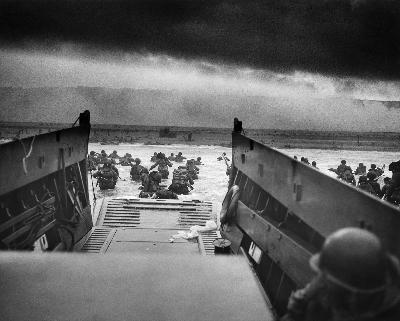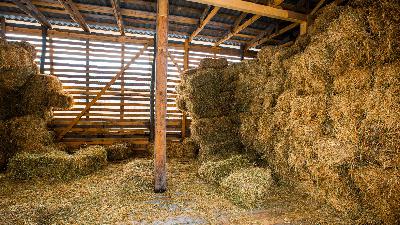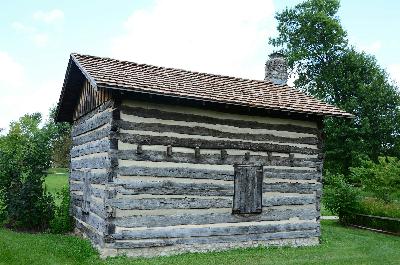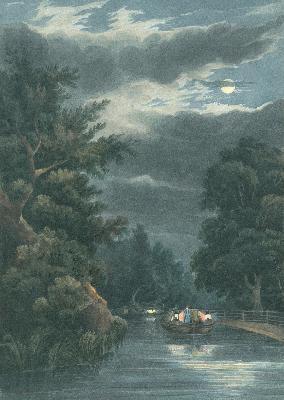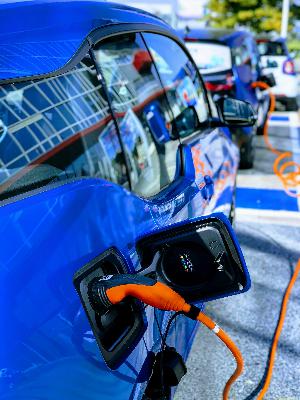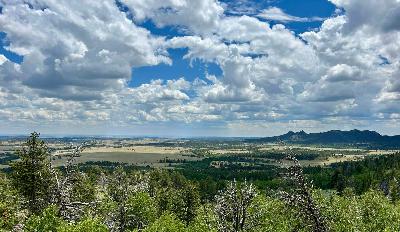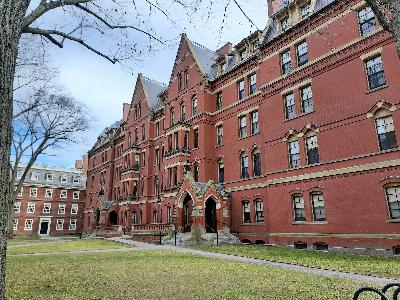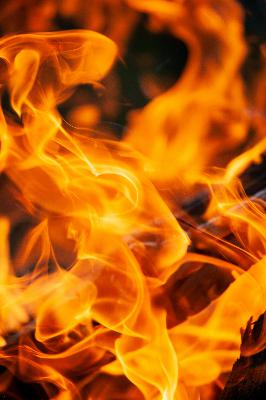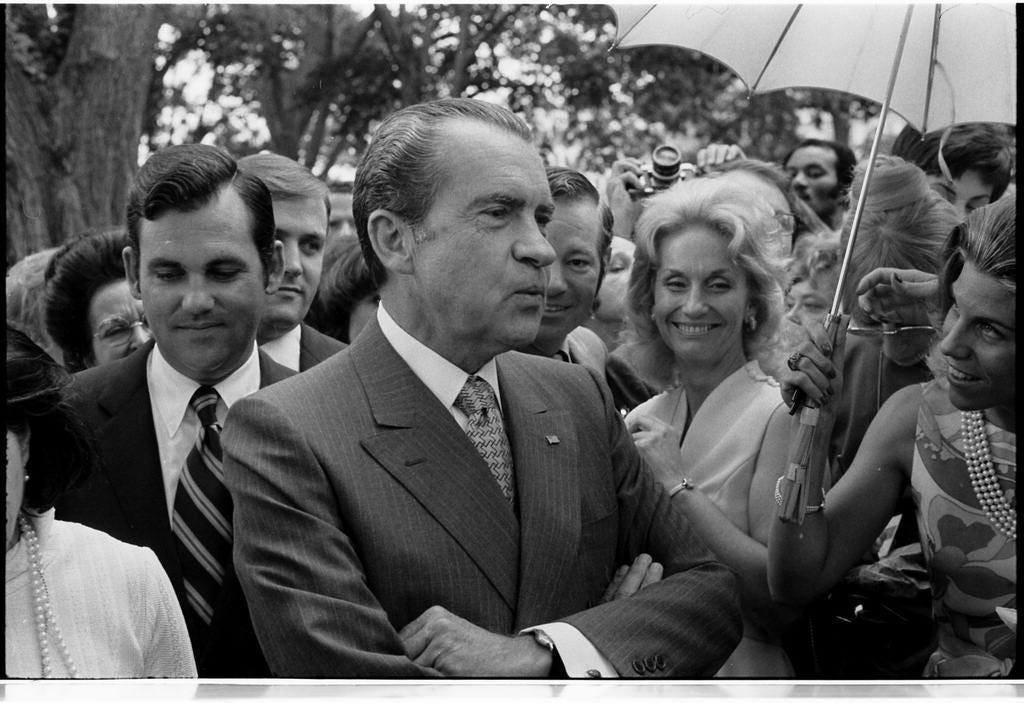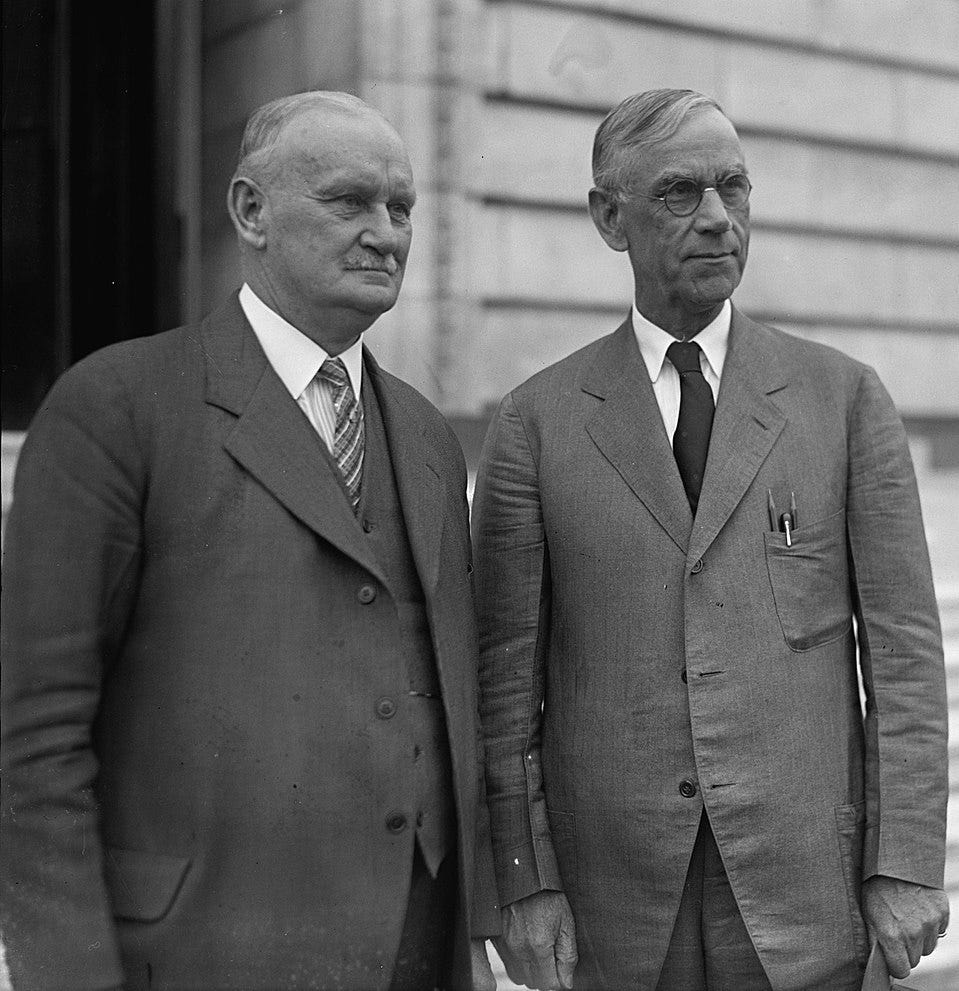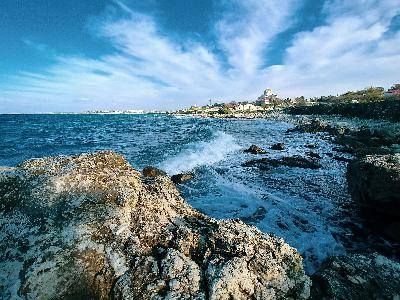Did FDR’s D-Day Prayer Violate the First Amendment?
Description
Americans Struggle Today with how Openly our Leaders Should Express Their Faith
I had a buddy growing up. His name was Emmett.
He wasn’t a classmate. He was much older than I was. One of those men from the Greatest Generation who made time for a kid who asked too many questions.
Few of us really know the stories of most of the people in our lives. And until I interviewed him for a Junior High grammar class assignment for Mrs. Adams, all I knew about Emmett was that he greeted me every Sunday in my small country church with a smile on his face.
I knew some details before the interview. Emmett Donovan. Born in Monroe County, Missouri. Carpenter by trade. Long-time deacon at the First Baptist Church. He had a second refrigerator in his garage where his lifelong bride, Hazel, let him keep his fishing worms.
I learned a lot about Emmett in that interview.
He was the only kid from Monroe County to board a boat in England on June 4th, 1944, bound for Normandy to fight Nazi Germany.
The weather across the channel was dicey. The operation delayed a day because of it, but there were too many soldiers to unload the boats. It would have taken too long. They had to stay an extra day on the boats, waiting. They played cards. Wrote letters. Tried to keep their spirits high. Emmett had married Hazel in 1937. She was on his mind, and he on hers.
The weather cleared up enough to try the assault on June 6.
At 2300 hours on June 5, paratroopers started taking off from their bases in England.
At midnight, June 6, the Allied Fleet pushed off. Five hours later, dawn bled into gray.
In the darkness just before dawn, the men had spent almost a full two days aboard the ships. The rough English Channel tossed the vessels to and fro. Many men were ill from seasickness and nerves. They knew they would not all survive and return home to America.
Sunrise in Normandy, France, came at 5:46 AM local time that day. From the boats, the men could see a faint outline of where they were going, but no clear view of what awaited them.
Landing craft carrying the first wave launched from the larger vessels about seven to 12 miles offshore. From aboard these landing craft, the faint outline of the coast was visible in the near dawn light.
But by 0530, the Germans absolutely knew something big was happening. Just after midnight, over 13,000 US and British paratroopers had dropped behind enemy lines. German units in Normandy were engaging paratroopers. German radios reported landings and firefights throughout the night.
Allied bombers, fighters, and gliders filled the night sky, lit by the flicker of explosions below.
Now, in the early morning, German radar and lookouts tracked an armada of ships. German defenses saw glimpses of the landing craft through the rough sea chop and the fog.
Not every landing craft made it to shore.
The sea was violent that morning. The swells were high. Beach obstacles and mines sank some boats. Artillery hit others before they ever touched sand. Engines failed. Men jumped into water over their heads and drowned under the weight of their packs. All under heavy German fire.
The obstacles and fires damaged, misguided, or destroyed hundreds of landing craft before they could reach their designated beaches. Omaha was the worst of the five landing zones. Nearly half the tanks sank before firing a shot. Some landing craft circled for too long, disoriented in smoke and chaos, and ran aground.
Emmett’s boat made it. But that didn’t mean it went well.
He jumped into the water, rifle held high, and slowly waded in heavy water toward the beach. On his way toward his objective, Emmett stopped to provide first aid to a fallen soldier on the beach. It was bad. He told me he tried to help the soldier put himself back together. But with bullets cracking around him, there wasn’t much he could do.
Allied forces paid a high price. Two-thirds of some initial landing units suffered casualties. Company A of the 116th Infantry Regiment, part of the 29th Division, hit Omaha Beach first. In just the first hour, 96% became casualties, a grim testament to the brutality of that morning.
Emmett would achieve his objective. Behind him, wave after wave of Allied troops poured onto the beaches, clawing out a foothold, marking the beginning of the end for Nazi Germany.
As a reward, Emmett had the pleasure of going on to fight at the Battle of the Bulge.
To the credit of many, America would help defeat fascism and liberate Europe from Nazi Germany.
After the war, Emmett returned home to his small country town. He and Hazel would stay married for 61 years. They had two sons and three grandchildren. She passed away when he was 85. He would survive her for 12 more years.
Many years later, as a young boy, I only saw him act with grace and dignity. He was always quick with a smile and a handshake.
He didn’t talk about politics or pride. Had you not known and asked about his experience, he would not have told you. You would have assumed he had lived his entire life in a little Missouri town.
He had a quiet faith. He was a proud member of his congregation, but he didn’t talk much about it.
I’ve never forgotten that interview. I was just a Junior High student. And like most kids, I didn’t ask enough of the right questions. He remembered the beach vividly. The chaos. The noise. The man he tried to help.
But if I could sit with Emmett again today, I’d ask about the hours before that.
What was he thinking about on the boat? Did he write a letter to Hazel? Did he stare out at the gray horizon, wondering if he would see her again?
I’ll never know. But knowing him later in life, I believe he carried something more than fear. Duty, maybe. The quiet strength of his generation.
I believe a strong component of his grace and dignity came from his faith.
Emmett and Hazel weren’t the only Americans praying that day.
President Franklin D. Roosevelt’s June 6th Address
1944 was a time of hand-wringing across the country. We worried about our nation’s sons and daughters fighting in Europe and the Pacific. When people worry, they turn to the Almighty. When they turn to the Almighty, they pray.
President Franklin D. Roosevelt’s calendar on June 6, 1944, detailed only one appointment. Invasion Day.
The FDR Library says that “During the tense early hours of the invasion, FDR monitored reports from the front. That evening, he delivered a statement to the American people. It took the form of a prayer, which he read on national radio.”
FDR sought to offer the nation strength with a heartfelt address.
“My fellow Americans: Last night, when I spoke with you about the fall of Rome, I knew at that moment that troops of the United States and our allies were crossing the Channel in another and greater operation. It has come to pass with success thus far.
And so, in this poignant hour, I ask you to join with me in prayer:
Almighty God: Our sons, pride of our Nation, this day have set upon a mighty endeavor, a struggle to preserve our Republic, our religion, and our civilization, and to set free a suffering humanity.
Lead them straight and true; give strength to their arms, stoutness to their hearts, steadfastness in their faith.
They will need Thy blessings. Their road will be long and hard. For the enemy is strong. He may hurl back our forces. Success may not come with rushing speed, but we shall return again and again; and we know that by Thy grace, and by the righteousness of our cause, our sons will triumph.
They will be sore tried, by night and by day, without rest-until the victory is won. The darkness will be rent by noise and flame. Men's souls will be shaken with the violences of war.
For these men are lately drawn from the ways of peace. They fight not for the lust of conquest. They fight to end conquest. They fight to liberate. They fight to let justice arise, and tolerance and good will among all Thy people. They yearn but for the end of battle, for their return to the haven of home.
Some will never return. Embrace these, Father, and receive them, Thy heroic servants, into Thy kingdom.
And for us at home -- fathers, mothers, children, wives, sisters, and brothers of brave men overseas -- whose thoughts and prayers are ever with them--help us, Almighty God, to rededicate ourselves in renewed faith in Thee in this hour of great sacrifice.
Many people have urged that I call the Nation into a single day of special prayer. But because the road is long and the desire is great, I ask that our people devote themselves in a continuance of prayer. As we rise to each new day, and again when each day is spent, let words of prayer be on our lips, invoking Thy help to our efforts.
Give us strength, too -- strength in our daily tasks, to redouble the contributions we make in the

